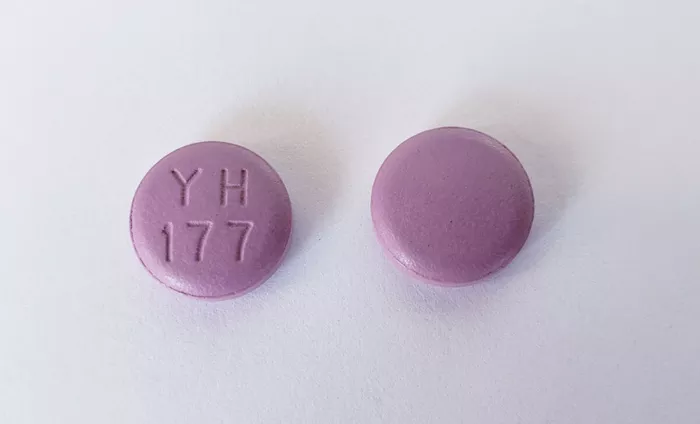Bupropion is a medication that many people know for treating depression and helping people quit smoking. However, there’s a common question about whether it can also help with anxiety. In this article, we’ll explore what bupropion is, how it works, and whether it can be useful for managing anxiety.
Introduction to Bupropion
Bupropion, often sold under the brand names Wellbutrin and Zyban, is a type of antidepressant called a norepinephrine-dopamine reuptake inhibitor (NDRI). Unlike many other antidepressants, bupropion works by affecting two main chemicals in the brain: norepinephrine and dopamine. These chemicals play important roles in mood, motivation, and pleasure.
Bupropion is well-known for its benefits in treating depression and seasonal affective disorder (SAD), and it’s also used to help people stop smoking. One of the reasons doctors like prescribing bupropion is that it tends to have fewer side effects compared to other antidepressants. For example, it doesn’t usually cause weight gain or sexual problems, which are common side effects of many other antidepressants.
However, there’s been a long-standing concern among some doctors and patients that bupropion might make anxiety worse. This concern has led some to avoid using bupropion for patients who have both depression and anxiety. But is this concern justified? Let’s look closer at how bupropion affects anxiety.
How Bupropion Works
To understand whether bupropion can help with anxiety, it’s helpful to know how it works. Bupropion increases the levels of norepinephrine and dopamine in the brain. These chemicals are involved in many functions, including mood regulation and motivation.
Norepinephrine is particularly important for alertness and arousal. It’s one of the reasons why bupropion can help people feel more alert and awake, which is beneficial for treating depression. However, because norepinephrine can also increase alertness, some people worry that it might increase anxiety.
Dopamine, on the other hand, is associated with pleasure and reward. It helps people feel motivated and interested in activities. By increasing dopamine levels, bupropion can help improve mood and reduce symptoms of depression.
Bupropion and Anxiety
Despite the concern that bupropion might worsen anxiety, recent studies suggest that it can actually be helpful for people with anxiety, especially when they also have depression. One study looked at a large group of patients who were taking either bupropion or selective serotonin reuptake inhibitors (SSRIs), which are another type of antidepressant commonly used to treat anxiety and depression. The study found that both bupropion and SSRIs reduced anxiety symptoms over time, and there was no significant difference in how well they worked for anxiety.
Another important point is that bupropion is often used in combination with SSRIs for patients who don’t fully respond to SSRIs alone. This combination can be effective for treating depression and anxiety together.
Common Concerns About Bupropion and Anxiety
Some people might still worry that bupropion will make their anxiety worse because it can cause side effects like restlessness, agitation, or trouble sleeping. These side effects can feel similar to anxiety symptoms, which might lead people to think that bupropion is increasing their anxiety.
However, these side effects are usually temporary and can be managed by adjusting the dosage or adding other medications if necessary. It’s also important to remember that bupropion is not typically sedating, which means it won’t make you feel drowsy like some other medications might. This can be a benefit for people who need to stay alert during the day.
Benefits of Using Bupropion for Anxiety
Bupropion has several benefits that make it a good option for treating anxiety, especially in people who also have depression:
Less Weight Gain: Unlike many antidepressants, bupropion is less likely to cause weight gain. This can be a significant advantage for people who are already concerned about their weight.
Fewer Sexual Side Effects: Bupropion tends to have fewer sexual side effects compared to other antidepressants. This makes it a good choice for people who are sensitive to these types of side effects.
No Sedation: Bupropion doesn’t usually cause drowsiness, which is beneficial for people who need to stay alert and focused during the day.
Effective for Depression: Bupropion is effective in treating depression, which is often linked with anxiety. By improving depressive symptoms, bupropion can indirectly help reduce anxiety.
Side Effects of Bupropion
While bupropion has many benefits, it can also cause some side effects. Common side effects include:
- Dry Mouth: Many people experience dry mouth when taking bupropion.
- Nausea or Vomiting: Some people might feel nauseous or vomit, especially when first starting the medication.
- Constipation: Bupropion can cause constipation in some individuals.
- Headache: Headaches are a common side effect.
- Trouble Sleeping: Bupropion can interfere with sleep, especially if taken too close to bedtime.
- Dizziness: Some people might feel dizzy or lightheaded.
- Anxiety or Nervousness: As mentioned, bupropion can cause feelings of anxiety or nervousness in some people.
Less common but more serious side effects include seizures, which are rare but can occur, especially in people who have a history of seizure disorders.
Conclusion
Bupropion can be a helpful medication for managing anxiety, especially for people who also have depression. While there’s a common concern that it might worsen anxiety, recent studies suggest that it can reduce anxiety symptoms over time, similar to other antidepressants like SSRIs.
It’s important to remember that everyone’s experience with medication is different. If you’re considering taking bupropion for anxiety, it’s crucial to discuss your options with a healthcare provider. They can help you weigh the benefits and risks and decide if bupropion is right for you.
In summary, bupropion is a versatile medication that offers several advantages over other antidepressants. Its ability to improve mood without causing sedation or significant weight gain makes it a valuable option for many people. While it may not be the first choice for everyone with anxiety, it can certainly be a useful tool in managing both depression and anxiety when used appropriately.
Related topics:


